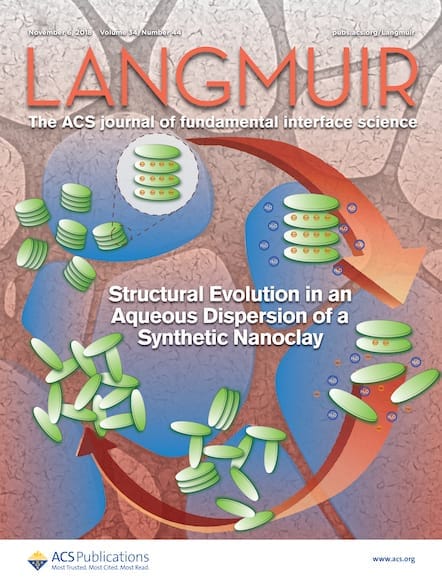Former Langmuir Editor-in-Chief Professor Françoise Winnik passed away recently. Professor Winnik was a part of the journal’s editorial team for 19 years, serving first as a senior editor and then its executive editor, before becoming its EIC in 2014. She leaves behind an indelible mark on the colloids, interfaces, and material science community and is missed by her […]

Former Langmuir Editor-in-Chief Professor Françoise Winnik passed away recently. Professor Winnik was a part of the journal’s editorial team for 19 years, serving first as a senior editor and then its executive editor, before becoming its EIC in 2014. She leaves behind an indelible mark on the colloids, interfaces, and material science community and is missed by her friends and colleagues.
Professor Winnik was born in France to parents who encouraged her to strive for greatness at a time when many were less likely to encourage their daughters. Worried that she might grow up to become a secretary, her mother forbade her from taking a typing class in school. “I still haven’t quite mastered it,” she said in 2017.
She earned her undergraduate degree in chemical engineering at the National School of Chemistry in Mulhouse, France, in 1973. She earned an M.Sc. in 1974 and a Ph.D. in 1979, both in organic synthesis at the University of Toronto. In 1981, she took a position as a research scientist at the Xerox Research Centre of Canada. After 12 years in the private sector, she became an associate professor in the chemistry and physics departments at McMaster University in Canada, before joining the University of Montreal in 2000, where she worked until her move to the University of Helsinki in Finland in 2018. Professor Winnik was also a principal investigator at the WPI International Center for Materials Nanoarchitectonics of the National Institute for Materials Science in Tsukuba, Japan.
Professor Winnik remained an active researcher throughout her life. Her last paper published in an ACS Publications journal was “The Two Phase Transitions of Hydrophobically End-Capped Poly(N-isopropylacrylamide)s in Water,” in Macromolecules last June.
She was known for her enthusiasm for surface and colloids science and the special role these fields play in materials research. She also had a passion for helping the next generation of scientists to reach new audiences. “I always like to discover outstanding young speakers during a scientific meeting and to invite them “on the spot” to write a feature article. It is such a valuable opportunity to promote their work among surface/colloids scientists worldwide,” she wrote in her farewell Langmuir editorial.
In 2018, when asked what advice she would give women just beginning their careers in science, she said, “Prepare for the future: dig deep into your topic and know your field. Be fearless, but wise, and do not give up!”
